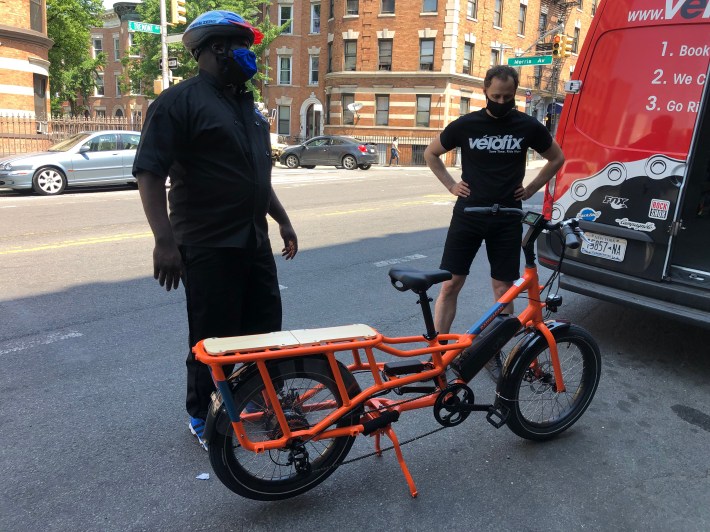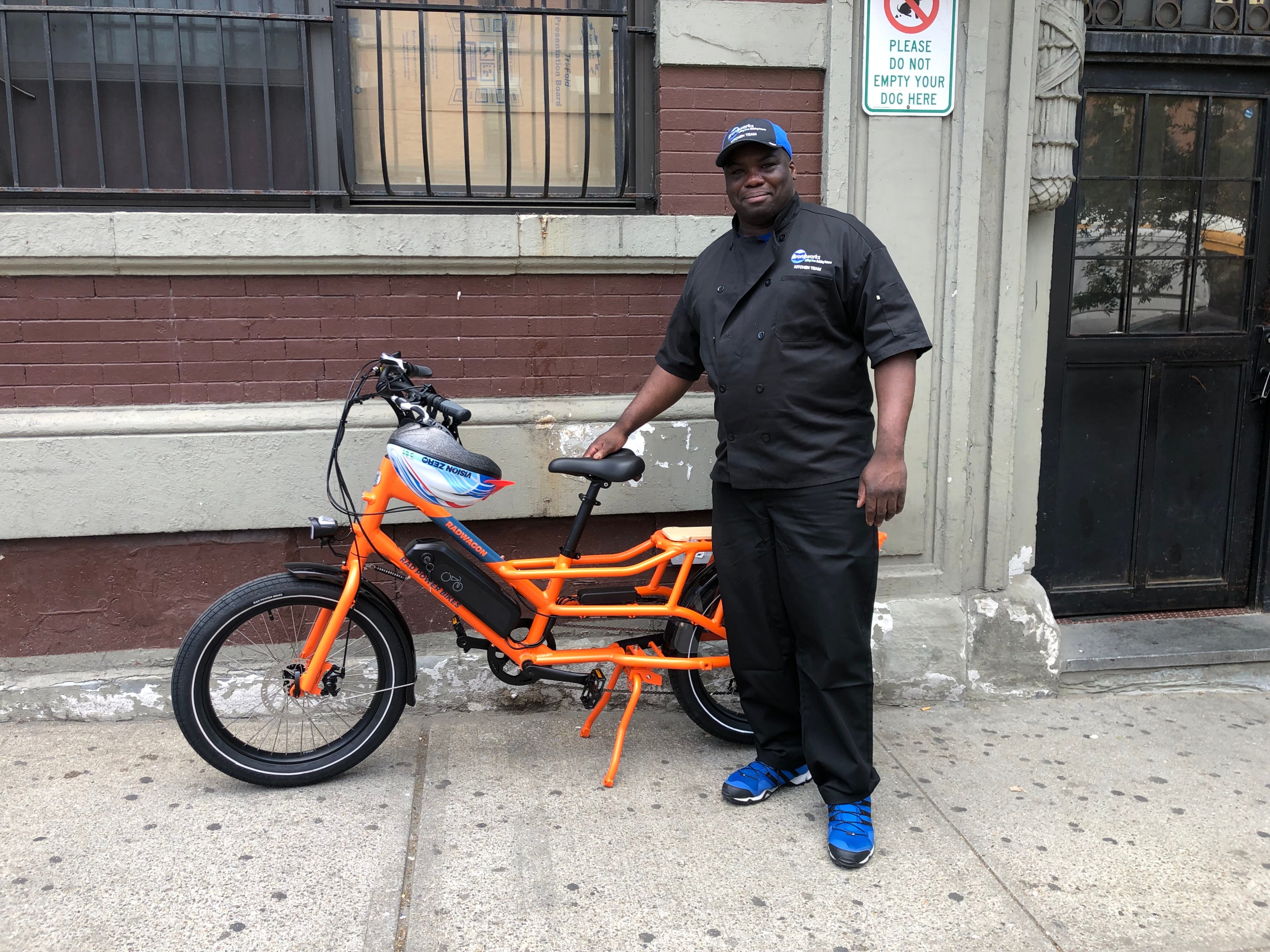Thousands of city commuters' lives will get a bit easier for them — and cleaner for the rest of us — thanks to a new program that will subsidize the purchase of e-bikes or scooters for 10,000 lower-income frontline and essential workers.
The Equitable Commute Project — which will provide up to half the cost of the sustainable micro-mobility mode — is aimed at essential workers whose commutes are tough because they live in, or work within, transportation deserts around the city. The project — with help from Transportation Alternatives, Spring Bank and other organizations — will give workers shorter commutes and the flexibility to deliver their services without relying on cars.
"The pilot is for people that are marginalized," said Christine Hsu, director of development at Transportation Alternatives. "We are helping low-income workers and will gauge who has the highest needs."
"Need" will largely be based on income, occupation, where a worker lives, and how much travel that worker undertakes on the job.
That balance explains why Frank Walrond got the program's first e-bike last week.
Walrond, a 37-year-old food service manager at BronxWorks, often has to travel among the organization's five kitchens to ensure that clients get all the food they need. Before getting the Rad Power e-bike, Walrond said relied on transit or taxis, neither of which is an ideal option when he's carrying 100 pounds of goods.
He said people in the neighborhood near his BronxWorks kitchens became accustomed to seeing him pulling carts across the streets and sidewalks. Sometimes he would use his own bike to drop-off and pick up goods at different kitchens, but it was not suitable to carry heavy loads, he said. The new Rad Power bike has 350 pounds of capacity.
"With this bike I will be able to cut down on all my time," Walrond said. "I will be able to control my time. No more will I have to wait for transportation. No more will I have to use up agency resources."
The goal of the subsidy program is to make micro-mobility affordable and give a sustainable option to low-income workers, many of whom are required to have some form of transportation. But e-scooters can cost more than $500 and an e-bike costs more than $1,000 — figures that can be halved with an ECP grant.
But that takes money. By June, the Equitable Commute Project and Transportation Alternative will begin a fundraising push to raise $6.25 million (donate here).
"It is a multi-pronged approach," said Hsu. "We are trying to engage corporate leadership to set up and take the majority. We are trying to fund with smaller grants and fundraising. Also, we are looking towards federal and state funding."

The project will provide more bikes this year, beginning in the Bronx. Applications will be available in the fall.






